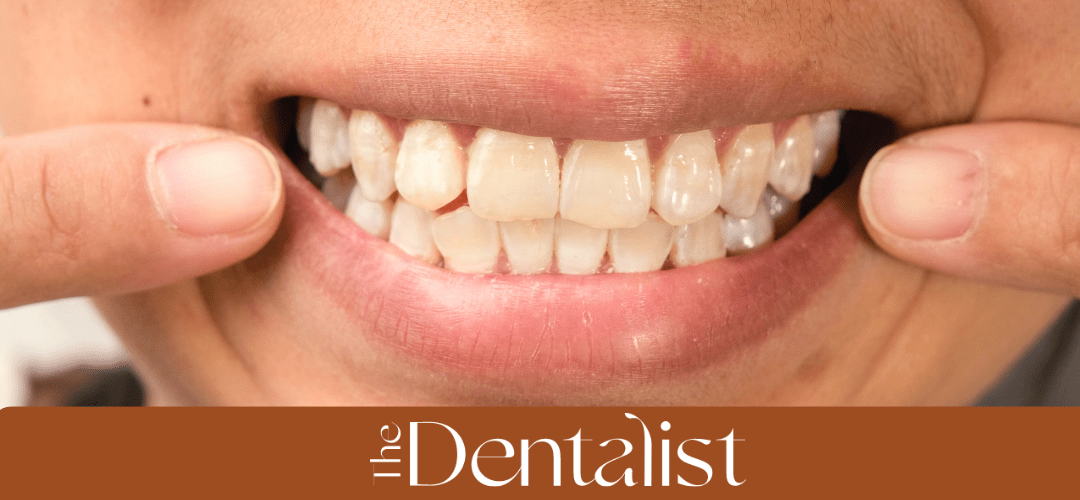Introduction
Get ready for an eye-opening exploration as we uncover the hidden connection between your oral health and sleep quality. You will be amazed by the unexpected ways these two aspects of your well-being intertwine. We invite you to read this blog, where we shed light on how your oral health can significantly influence the restfulness and rejuvenation of your sleep experience.
The link between oral health and sleep quality
Did you know that the health of your mouth and the quality of your sleep are closely intertwined? It’s true! Your oral health can have a significant impact on your sleep quality, just as poor sleep can negatively affect your oral health. This unique relationship underscores the importance of adopting good oral hygiene practices to ensure a restful and rejuvenating sleep experience.
Oral health conditions that affect sleep quality
Let’s dive deeper into the oral health conditions that can disrupt your sleep and explore their surprising connections.
1. Gum disease and sleep apnea
Gum disease, scientifically known as periodontal disease, is a prevalent oral health condition characterised by inflammation and infection of the gums. Recent studies have revealed a strong association between gum disease and sleep apnea, a sleep disorder marked by breathing pauses during the night. The inflammation caused by gum disease can obstruct the airway, making it more challenging to breathe properly while asleep.
2. Tooth decay and sleep disruptions
Tooth decay, often triggered by poor oral hygiene habits and excessive consumption of sugary foods, can lead to dental pain and discomfort. These unpleasant sensations can disrupt your sleep, causing frequent awakenings throughout the night. Additionally, individuals with tooth decay may experience heightened sensitivity to temperature changes, making it difficult to create a comfortable sleeping environment.
3. Bruxism and sleep disturbances
Bruxism, commonly known as teeth grinding, is a condition characterised by the clenching or grinding of teeth during sleep. It can cause various sleep disturbances, including frequent awakenings and fragmented sleep patterns. The excessive force exerted on the teeth during grinding can lead to tooth wear, jaw pain, and headaches, further exacerbating sleep quality.
4. Breathing obstruction and sleep apnea
Smooth and unrestricted breathing is essential for a peaceful sleep experience. However, breathing obstructions resulting from conditions such as nasal congestion, deviated septum, or enlarged tonsils can contribute to the development or worsening of sleep apnea. These obstructions impede the proper flow of air, leading to disrupted breathing patterns and reduced oxygen intake during sleep.
The importance of proper breathing during sleep
Now that we understand how oral health influences sleep quality, let’s emphasise the significance of proper breathing during sleep. When you breathe correctly, your body receives a sufficient supply of oxygen, promoting relaxation and facilitating restorative sleep. By addressing any oral or nasal conditions that impede proper breathing, you can significantly enhance the quality of your sleep.
Practical tips to maintain excellent oral health
Ensuring the well-being of your oral health not only benefits your smile but also contributes to a more restful sleep. To help you achieve both, we’re delighted to share some tried-and-true tips:
-
Brushing and flossingRemember to brush your teeth at least twice a day using fluoride toothpaste and to floss daily. These simple yet effective practices help remove plaque, prevent gum disease, and ward off tooth decay, ensuring a healthier sleep routine.
-
Avoiding harmful habitsIt’s important to be mindful of habits that can be harmful to your oral health. Smoking, excessive alcohol consumption, and chewing tobacco pose a significant risk, not only for gum disease but also for other oral health problems that can influence the quality of your sleep. By avoiding these, you’re making a positive choice for the overall well-being of your oral health and for more restful nights.
-
Regular dental check-upsDon’t forget to schedule regular visits to our friendly dental team for professional cleanings and comprehensive check-ups. These visits enable us to detect and address any oral health issues early on, promoting better sleep and overall well-being.
Conclusion
Your oral health holds incredible sway over the quality of your sleep. Gum disease, tooth decay, bruxism, and breathing obstructions can all disrupt your sleep patterns and even lead to sleep disorders like sleep apnea. By prioritising good oral hygiene practices and promptly addressing any oral health concerns, you can unlock the potential for improved sleep quality and overall well-being.
Frequently Asked Questions
While gum disease itself may not directly cause sleep apnea, the inflammation and airway obstructions associated with gum disease can contribute to the development or worsening of sleep apnea.
Practising good oral hygiene, such as regular brushing and flossing, and visiting our dental practice for check-ups, can help prevent tooth decay and mitigate its impact on your sleep disruptions.
Yes, bruxism is relatively common, and it can indeed lead to sleep disturbances. If you suspect that you may be grinding your teeth during sleep, we recommend consulting with our dental professionals for an accurate diagnosis and personalised treatment options.
If you find yourself experiencing breathing obstructions during sleep, it’s natural to wonder about the available treatment options. The good news is that breathing obstructions can often be effectively addressed. Consulting with a healthcare professional or our dental team can help identify the underlying cause of your breathing issues and explore suitable treatment strategies. Remember, seeking timely intervention and appropriate treatment can make a substantial difference in improving your sleep quality and overall well-being.
The timeline for improving sleep quality by addressing oral health concerns may vary depending on the specific condition and treatment plan. However, by consistently practising good oral hygiene and diligently following recommended treatments, you can expect to observe noticeable improvements in your sleep quality over time.


